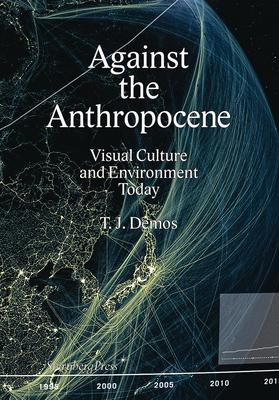Addressing the current upswing of attention in the sciences, arts, and humanities to the new proposal that we are in a human-driven epoch called the Anthropocene, this book critically surveys that thesis and points to its limitations. It analyzes contemporary visual culture--popular science websites, remote sensing and SatNav imagery, eco-activist mobilizations, and experimental artistic projects--to consider how the term proposes more than merely a description of objective geological periodization. This book argues that the Anthropocene terminology works ideologically in support of a neoliberal financialization of nature, anthropocentric political economy, and endorsement of geoengineering as the preferred--but likely disastrous--method of approaching climate change. To democratize decisions about the world's near future, we urgently need to subject the Anthropocene thesis to critical scrutiny and develop creative alternatives in the present.

Against the Anthropocene: Visual Culture and Environment Today
Addressing the current upswing of attention in the sciences, arts, and humanities to the new proposal that we are in a human-driven epoch called the Anthropocene, this book critically surveys that thesis and points to its limitations. It analyzes contemporary visual culture--popular science websites, remote sensing and SatNav imagery, eco-activist mobilizations, and experimental artistic projects--to consider how the term proposes more than merely a description of objective geological periodization. This book argues that the Anthropocene terminology works ideologically in support of a neoliberal financialization of nature, anthropocentric political economy, and endorsement of geoengineering as the preferred--but likely disastrous--method of approaching climate change. To democratize decisions about the world's near future, we urgently need to subject the Anthropocene thesis to critical scrutiny and develop creative alternatives in the present.